Does It Matter If Your Leather Conditioner Has Petroleum?
If you’ve already invested in a pair of quality leather boots, you probably know how important leather conditioner is. A good conditioner will do a lot for you: smooth out small scratches and imperfections, soften and add suppleness, protect from salt and dirt, degrease and clean the surface, and revitalize the luster of the leather by restoring some of the natural tanning oils that evaporate out over the course of wear.
Leather conditioner formulas vary depending on the manufacturer and most companies are pretty secretive about what goes into their products. Generally, though, a conditioner is made up of an oil (mink and neatsfoot oil are popular, as are castor and mineral oil) for hydration and some kind of wax for shine.
A good conditioner will do a lot for you: smooth out small scratches and imperfections, soften and add suppleness, protect from salt and dirt, degrease and clean the surface, and revitalize the luster of the leather by restoring some of the natural tanning oils that evaporate out over the course of wear.
But there’s one really controversial ingredient that divides the leather conditioning world: petroleum.
Petroleum, which comes from the Greek words for “rock oil”, is an umbrella term for the oil that is pumped out of the earth and refined to make compounds, called petroleum derivatives, that go into products ranging from gasoline to petroleum jelly. Some people are concerned that these products are too harsh for your boots, and that over time they’ll effect the color and luster of your leather. But is it true? Let’s find out.
What Petroleum Adds
I started my investigation by asking Philip Collias, the President of Zoes Manufacturing Co, if they use petroleum in their products. Zoes produces Venetian Shoe Cream, which is often called the gold standard of leather conditioners.
[Get the lowest price on Venetian Shoe Cream on Amazon here!]
“We do use a very, very small amount of very high grade petroleum distillate in our creams,” he told me. “It is in the formula to clean the leather as the other ingredients then will condition and preserve the leather. Water will not do this. This component will evaporate after it is applied and not harm the leather at all.”
It’s true that petroleum distillates are typically used to clean difficult-to-remove organic compounds like oil, grease or tar, and the science behind it is pretty cool: petroleum compounds have a really low liquid surface tension (unlike water) which allows them to penetrate and clean small spaces, like the pores in your boots’ leather. And, unlike silicone, which also acts as a cleaner, Collias says petroleum distillates will not affect the color of the leather.
[Read my full review of Venetian Shoe Cream!]
View this post on Instagram
Going All-Natural
What about the long-term impacts of petroleum on leather? I talked to David Armstrong, founder of Armstrong’s All-Natural, looking for answers.
“Leather is a skin after all, which likes to stay hydrated. When it dries out, it cracks, becomes brittle and actually breaks down,” Armstrong points out. “The petroleum derivatives used in many products such as naptha, stoddard solvent, and mineral spirits are drying out the leather, which means that over time, the more that these products are used, the more the leather can have a tendency to break down.”
All three of the products David mentions are on the harsher side of the distillation process, so it’s good to keep in mind that not all petroleum-based products are equally refined, nor will they have the same impact on your boots.
There’s another reason to consider a petroleum-free product, though, that has nothing to do with the longevity of your boots: the environmental impact.
“Since we do not use synthetic chemicals,” says Armstrong, “any ‘waste’ is diverted to our garden or compost system, if not recycled. If we used synthetic chemicals or petroleum byproducts, we would not be able to operate in this manner.”
So Does It Matter if Your Leather Conditioner Has Petroleum?
The bottom line is, it only matters if it matters to you. There are definitely positive environmental impacts to using an all-natural cleaner like Armstrong’s, but if you’re looking for a conditioner that will effectively clean your leather over time, a product that contains petroleum distillates, like Venetian Shoe Cream, will do you just fine.
At the end of the day, the important thing is that you’re periodically conditioning your boots.
Because leather is generally a durable material, it can go a long time without being conditioned (years, even!) and still perk right back up. If you want your boots to develop a nice patina and maintain their depth of color, though, ideally you should condition once every 3 to 6 months – erring on the side of under-conditioning to avoid the wrinkling, sagging, and loss of color that comes with over-conditioning.
Remember, whether you’re using an all-natural conditioner or one with petroleum: when it comes to conditioners, less is more!
Featured image via @armstrongsallnatural on Instagram.

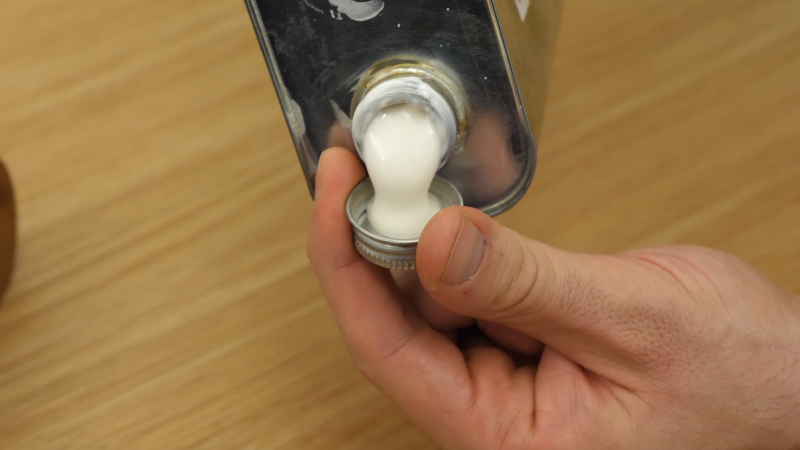

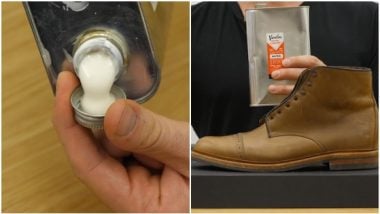

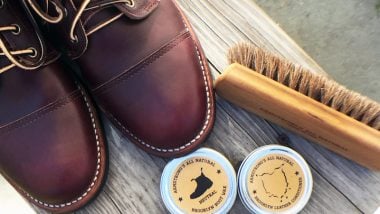
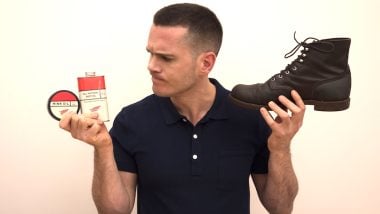


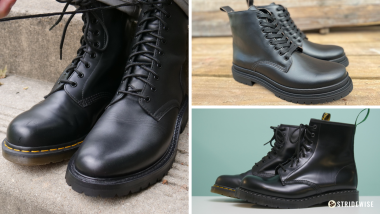


Join the Discussion